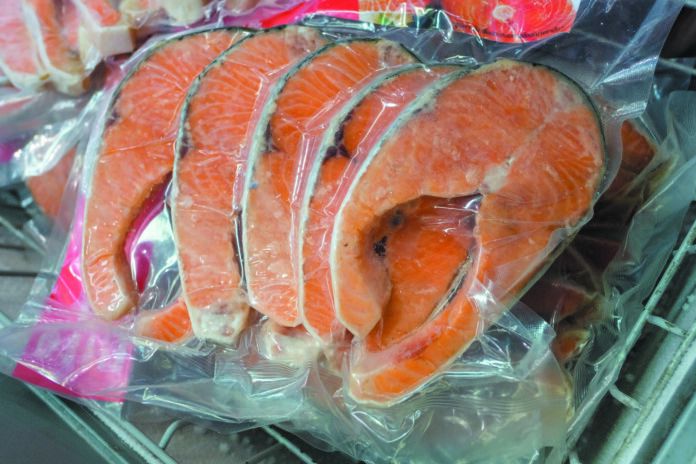Q: On the spectrum of processed foods, where do supposedly healthy foods such as plant milks, frozen veggie burgers, and seasoned frozen fish fit in?
A: Judith C. Thalheimer, RD, LDN, managing editor of Tufts Health & Nutrition Letter, answers: “According to the most commonly used criteria, minimally processed foods are whole foods that have been slightly modified to make them edible, safe, or more pleasant to consume. Ultraprocessed foods, on the other hand, are industrial formulations made mostly or entirely from extracted substances (sugar, starch, fats, proteins), other food constituents (hydrogenated or inter-esterified fats and modified starch), or laboratory compounds (such as flavor enhancers, artificial colors and flavors, stabilizers, and emulsifiers).
“With those definitions in hand, we can get to your important and complicated question! A frozen fish filet is minimally processed, even seasoned, although it is a less healthful choice if it has a lot of sodium (more than 20 percent of the Daily Value is considered high) or is breaded with refined grain. The amount of processing in a veggie burger varies (although all plant-based meat alternatives that closely mimic meat are ultraprocessed). According to a 2021 study, 90 percent of the plant-based beverages marketed as ‘milks’ (and 95 percent of almond milks) meet the criteria for ultraprocessed foods. This does not mean you need to avoid all plant ‘milks.’ Do look for those fortified with vitamin D and calcium that have no added sugar and less additives. Be aware that only soy ‘milk’ matches dairy as a protein source.
“Based on evidence to date, the major harmful factors of ultraprocessed foods seem to be too much refined starch, sugar, and added salt and the removal of healthy components like fiber (which serves as a prebiotic for our gut microbiome). Stick to whole and minimally processed foods as much as possible. When choosing processed foods, compare labels and choose the brand with the lowest salt, sugar, and refined flour and the most natural fiber (added fibers can be beneficial, but natural fiber is better). Keep in mind your goal is to achieve an overall healthy dietary pattern—which can include some processed and ultraprocessed foods within reason.”

Q: How much calcium do we need? Are there dangers to over-supplementation?
A: Bess Dawson-Hughes, MD, senior scientist on the Bone Metabolism Team at the Human Nutrition Research Center on Aging answers: “The Institute of Medicine (now called the National Academy of Medicine) recommendations for calcium intake are: 800 milligrams (mg) a day for women under age 50 and men up to age 71 and 1,000 mg per day thereafter. For women, the basis for the increase is to help offset the effect of the loss of estrogen at menopause. The estrogen loss triggers more rapid bone loss.
“Note that these recommendations represent total calcium intake, not intake from supplements. It is not difficult to reach the recommended intake through the diet. A serving of milk, yogurt, or yogurt drink supplies around 300 mg. Just one ounce of a hard cheese like cheddar has 200 mg. Processed foods are frequently fortified with calcium, including many breakfast cereals and plant ‘milks.’ Orange juice fortified with 300 mg of calcium per serving is also widely available. Most vegetables, legumes, nuts, seeds, and dried fruit also contain some calcium. Examples of plant sources include cooked greens and broccoli, chickpeas, almonds, sesame seeds, kiwi, dried figs, and acorn squash. Don’t forget calcium-set tofu, four ounces of which supplies 250 to 700 mg.
“In general, any excess calcium you consume is simply excreted in the urine. Thus, the excess has no value to bone. There is a point at which excess calcium can increase risk of kidney stones. This was illustrated in a large study (the Women’s Health Initiative) in which postmenopausal women with an average calcium intake of 1,100 mg per day were supplemented with 1,000 mg per day of calcium. Over the five-year study, the supplemented group had 16 percent higher risk of developing a kidney stone.”
Richard D. Siegel, MD, is the co-director of the Diabetes and Lipid Center at Tufts Medical Center and an associate professor at Tufts University School of Medicine. He specializes in endocrinology, diabetes, and obesity.
























